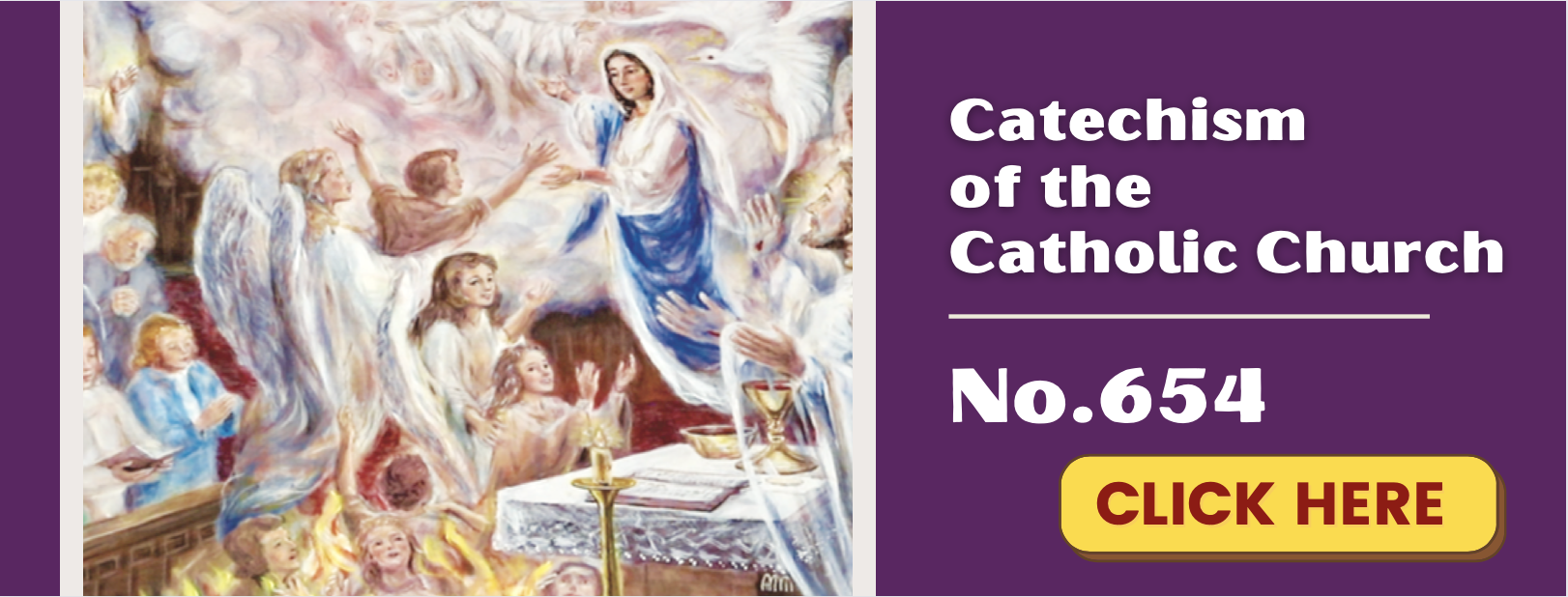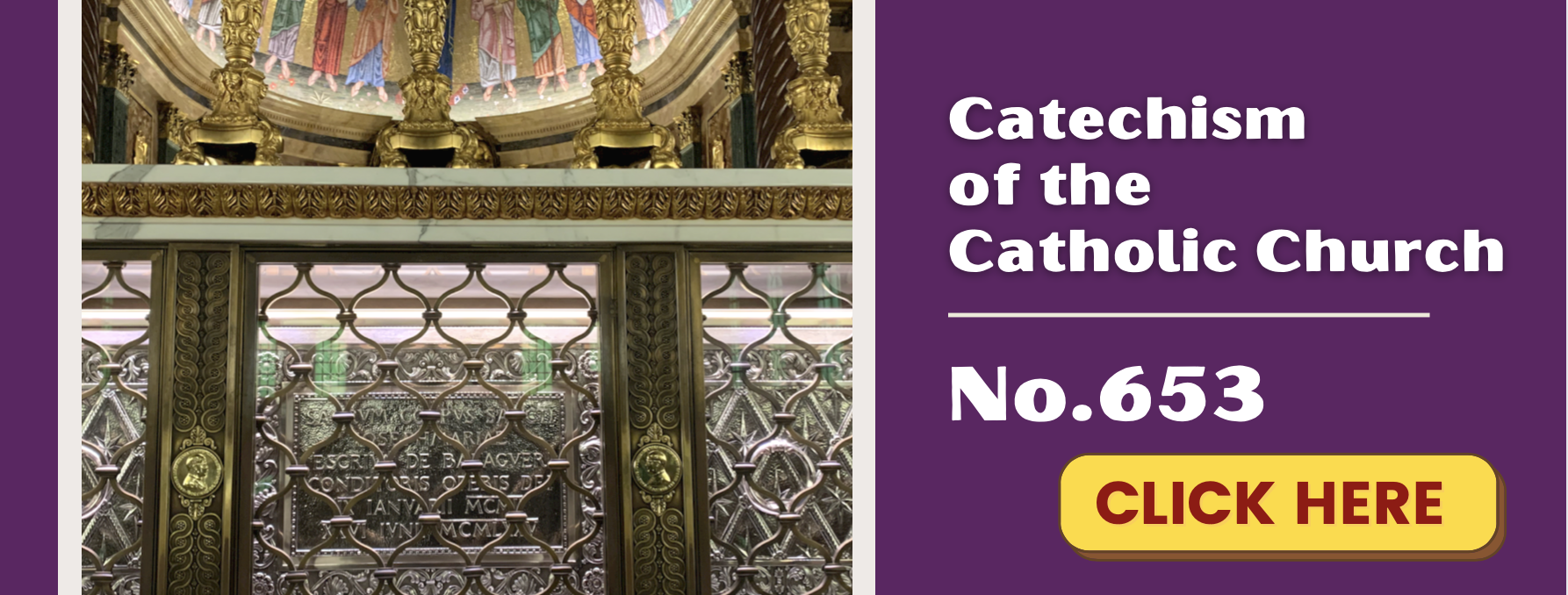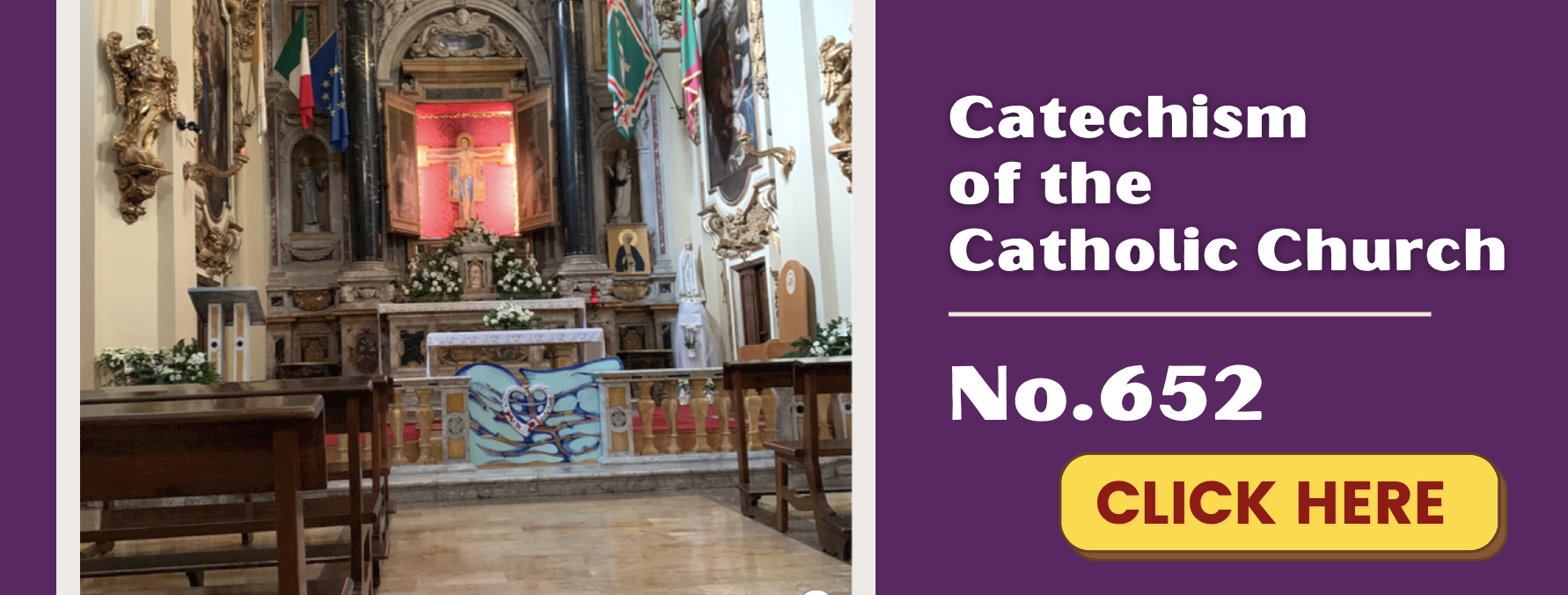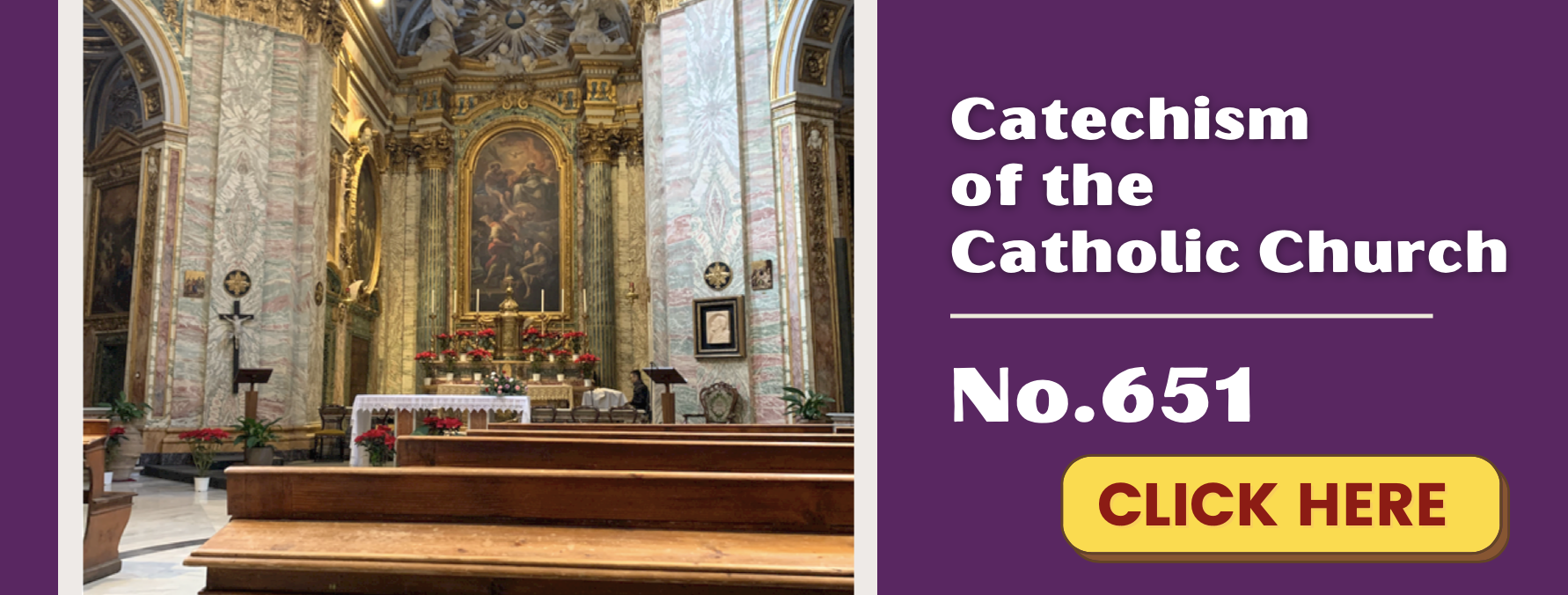Third Sunday of Lent

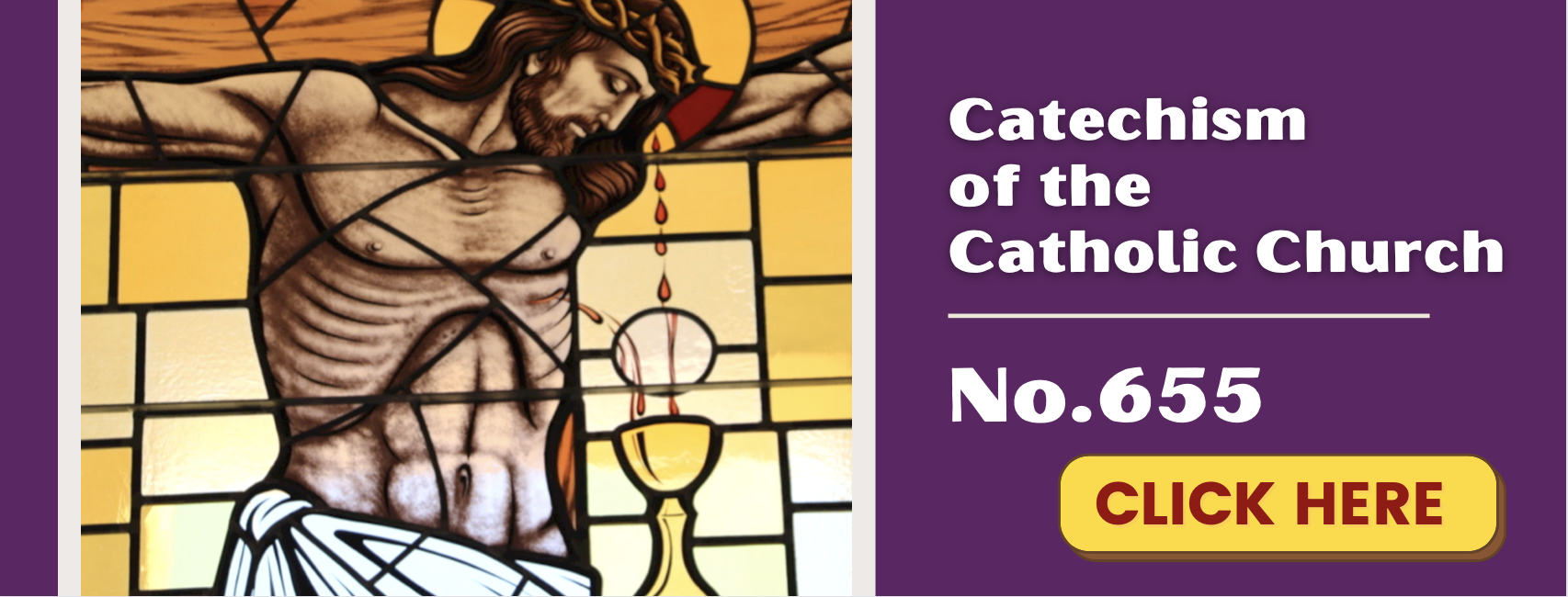

“For greater things you were born.” (Ven. Mother Luisita)
SUNDAY, March 20th Lk. 13: 1-9 Jesus gives us this parable. The owner of an orchard is ready to cut down a fig tree that is not producing. The gardener pleads thus: “Sir, leave it for this year also, and I shall cultivate the ground around it and fertilize it; it may bear fruit in the future. If not you can cut it down.”
Jesus speaks more directly in John 15:5-6…
“I am the vine; you are the branches. If you remain in me and I in you, you will bear much fruit; apart from me you can do nothing. If you do not remain in me, you are like a branch that is thrown away and withers; such branches are picked up, thrown into the fire and burned.”
Then He gives us these most consoling words in John 15:7-8 “If you remain in me and my words remain in you, ask whatever you wish, and it will be done for you. This is to my Father’s glory, that you bear much fruit, showing yourselves to be my disciples.”
Lent is the time to renew and deepen our spiritual life so that we remain in Jesus and Jesus in us! The following meditation by Fr. Ed provides the steps to build a solid foundation for a deep spiritual life. Let us use this meditation to build on our strengths and fortify our weaknesses for the rest of Lent, so that we finish strong!
HOLINESS THROUGH A ROBUST PRAYER & SPIRITUAL LIFE… Fr. Ed Broom, OMV
We are all called to become saints! Jesus said this very clearly in the Gospel, the Good News of the Kingdom, with these words: Be holy as your heavenly Father is holy. (Mt 5:48) Also, in one of the Beatitudes the Lord exhorts us: Blessed are those who hunger and thirst for justice (or holiness), for they will be satisfied. (MT 5:6) Saint Paul to the Thessalonians reiterates the same challenge: This is the will of your heavenly father: your sanctification. (1 Thess 4:3) Bible verses constantly remind us of our call to holiness. If that were not sufficient, the lives of the saints and their words motivate us to be holy as our heavenly Father is holy. The following are a few examples:
+++ Saint Mother Teresa of Calcutta: “Holiness is not the privilege of the few, but the duty of all.”
+++ Saint Jose Escriva de Balaguer: “The greatest crisis in the modern world is the lack of saints.”
+++ Cure of Ars – The devil stated that if there were four more saints like the Cure of Ars aka St. John Marie Vianney, his kingdom would be destroyed. Wow! The power of the saints!
One of the most important documents in the modern world, Lumen Gentium, Chapter V, is entitled: The Universal Call to Holiness. In other words, not a mere fraction are called to be holy, but absolutely all are called!!! None are excluded.
On one occasion, in a homily, I asked the people this simple question: “How many of you want to go to heaven?” All raised their hands. Then I asked: “How many of you want to be saints?” Very few raised their hands. Then I intervened saying: Who is in heaven? God the Blessed Trinity, the Blessed Virgin Mary, the angels, and the SAINTS!!! Therefore, if you want to get to heaven, you have to become a saint!
Let us give a path we can undertake to arrive at becoming a saint, and that is by striving to maintain a robust prayer life. We will offer ten concrete suggestions to arrive at this most noble of all enterprises—to become holy as our heavenly Father is holy!
1. CLEAN THE WINDOW OF YOUR SOUL. The sunlight cannot beam through a dirty window. Likewise, God’s grace and the Holy Spirit cannot penetrate a dirty or sullied heart; that heart must be purified by means of a good sacramental confession. Trust in God’s mercy and have recourse to the Sacrament of Confession. Try to prepare well and make the best confession in your life. This will clear the window pane of your soul to receive the divine invasion of God’s grace. Remember the words of Jesus in one of the Beatitudes: “Blessed are the pure of heart, they will see God.” (Mt 5:8)
2. GIVE TIME! So that the Holy Spirit could descend powerfully on the Apostles and Mary on Pentecost, they had to pray at length, not just a few minutes or a few hours! Rather, they made a novena—nine days in which the Apostles, united with the Blessed Virgin Mary, prayed fervently for the coming of the Holy Spirit. Therefore, as in striving for perfection in any activity, be it sports, music, academics, languages, writing, or painting, the time spent is essential; so it is with the art of all arts, the art of prayer! We must give quality time to learn to pray well!
3. PLACE! Also of great importance is that of finding some place to pray. In that place there must be silence! Remember that God spoke to the prophet Elijah when he arrived at the mountain, not in the fire, nor in the earthquake, nor in the storm and thunder; rather, God spoke to Elijah in the silence of a gentle breeze! Find a place of silence. Ven. Archbishop Fulton J. Sheen encouraged all that the famous Hour of Power (which he kept faithfully for more than 50 years) should be done in front of Jesus in the Blessed Sacrament. This is the ideal place! However, it is not possible for everyone. Most likely for many the Holy Hour must be done in some quiet corner of their home, called by the Church documents, The Domestic Church.
4. MATERIAL TO PRAY WITH! Saint Teresa of Avila, one of the few women Doctors of the Church, known as The Doctor of Prayer, stated that we should never go to prayer without having a book with us as a guide. Of course, the greatest value and importance as a stimulus and motivation for prayer is the Bible—the Word of God. Another great source of immense richness is the Liturgy: the prayers present in Holy Mass, as well as in the Liturgy of the Hours. Holy words spark holy thoughts, and holy thoughts spark holy desires—there we have the essence of prayer! From eyes, to head, to heart! Pope Francis adds “…from heart to your feet”— bring the fruits of your prayer into the lives of others!!!
5. PRAYER METHOD. Spiritual writers in the mystical life of prayer frequently suggest that we utilize some form or type of prayer method. Methods are useful in all forms of learning: languages, sports, driving, and cooking. But it is even more important in learning the art of all arts, the art of prayer. Methods abound, but we would suggest a method that Pope Benedict XVI proposed in his document Verbum Domini—the Word of God! In this superb writing of Pope Emeritus Benedict XVI, he recommends the prayer method known as LECTIO DIVINA. Following, we give a brief summary of this method to come to our aid:
1) LECTIO—Read the text very carefully with the help of the words of Samuel in the Temple: Speak, O Lord, for your servant is listening!!!
2) MEDITATIO—In imitation of the Blessed Virgin Mary, ponder, ruminate, think deeply on the Word of God, its meaning and purpose in your own life, and how it can help you grow in holiness.
3) CONTEMPLATIO—Imagination! Use your imagination and try to picture that you are truly present in the scenes presented in the Scriptures. Saint Ignatius calls this Composition of Place. Especially try to imagine the face and then eyes of Jesus gazing at you with love.
4) ORATIO—Moved by the Holy Spirit enter into conversation with the Lord Jesus, the Father, the Holy Spirit, and then the Blessed Virgin Mary. This is the most important part of the method that actually leads to this intimate conversation and dialogue with Our Lord Jesus. Saint Teresa of Avila explains prayer as simply a dialogue of friendship between two friends who love each other! Talk to the Lord as long as you want. He is never in a hurry and longs for you to talk to Him, love Him, and establish a deep friendship with Him.
5) ACTIO—After you have finished your formal prayer period put into practice what you experienced in your intimate time of prayer with the Lord. Take as your example the Blessed Virgin Mary with the Annunciation leading to the Visitation. In the Annunciation, we contemplate the Blessed Virgin Mary absorbed in prayer as our contemplative model. In the Visitation, we see Mary launching into action to serve her cousin Elizabeth in her need as our active model. In sum, our prayer should move us to put love into action. If you like, prayer should transform us into Contemplatives in Action!
6) TRANSFORMATIO—Finally, the net result of fervent and efficacious prayer should be that of a life being transformed. In the words of the great Apostle Saint Paul: “It is no longer I who live, but Christ who lives in me! (Gal 2:20)
6. THE HOLY SPIRIT. On one occasion, while talking to a Jesuit priest in spiritual direction, Saint Teresa of Avila complained that her prayer life seemed to be stagnant. This Jesuit director suggested that Saint Teresa pray more to the Holy Spirit to aid her in her prayer struggle. She did this and almost immediately she noticed a marked transformation in her prayer life. Saint Paul in the Letter to the Romans states: “We do not know how to pray as we ought, but the Holy Spirit intercedes with ineffable groans so that we can say ‘Abba, Father.’” (Rom 8:26) Therefore, as you start off your prayer period never forget to invite the presence of the Interior Master of Prayer (cf Teresa of Avila)—the Third Person of the Blessed Trinity, the Holy Spirit. Here is a short but efficacious prayer: “Come Holy Spirit, come through the Heart of Mary!”
7. SPIRITUAL DIRECTION. Athletes need coaches; musicians need teachers; new teachers need mentors. Likewise, with regard to the art of prayer we all need some trained person to guide us, orient us, encourage us, sometimes correct us; in sum, someone to direct us on the right path! That person in spiritual theology is called a Spiritual Director. Saint Teresa of Avila, Saint John of the Cross, Saint Ignatius of Loyola, and many other saints are unanimous in asserting that we all have a dire need for a Spiritual Director to help us grow in holiness and advance in the way of perfection in the sometimes challenging and arduous ascent up the Holy Mountain of prayer. (Saint John of the Cross: Ascent of Mount Carmel.) Beg Our Lady of Good Counsel to help you find a good Spiritual Director; this indeed is one of those pearls of infinite value!
8. SPIRITUAL READING. Of capital importance in our growth in the art of prayer is the importance of good reading, especially on the topic of prayer. There are many books written on prayer and we will suggest the following:
- The Catechism of the Catholic Church, Part IV (4) on Prayer
- Introduction to the Devout Life, Saint Frances De Sales
- The Life – Interior Castle – Way of Perfection, Saint Teresa of Avila
- Diary: Divine Mercy in My Soul, Saint Maria Faustina Kowalska
- Treatise On Prayer, Saint Alphonsus Liguori
- Fire Within – Deep Prayer, Deep Conversion – Prayer Primer, Fr. Thomas Dubay
These are just a few from the masters, but they can truly teach us the art of all arts, the art of prayer. Spiritual reading is absolutely essential for serious growth in our prayer life. Part of spiritual direction will be to address spiritual reading, especially on the prayer.
9. PRAYER AND PENANCE. On one occasion while taking a walk, I noticed a black bird, a crow, in front of me on the path. As I drew closer, the bird did not take flight. I thought that maybe I had a latent Franciscan charism with the birds and animals. But to my chagrin, this was not the case. The reason? The bird did not fly because the creature had a broken wing. This triggered in my mind this reflection and application! The bird could not fly due to a broken wing. In a parallel sense, for us to fly high, to really soar into the heights of prayer in our spiritual life, we desperately need two wings: the wing of prayer accompanied by the wing of penance. Not only does prayer and penance lift us toward the heights of holiness, but others as well! Our Lady of Fatima and Our Lady of Lourdes both insisted on the importance of both prayer and sacrifice or penance as the most efficacious means for the conversion of poor sinners. Our Lady of Fatima said with great sadness: “Many souls are lost because there is no one to pray and offer sacrifices for them.”
10. THE BLESSED VIRGIN MARY AND PRAYER. Saint Louis de Montfort in his classic True Devotion to Mary states unequivocally: The shortest, easiest, and most efficacious path to Jesus is through the Blessed Virgin Mary. Therefore, it must be said as we come to the conclusion of our essay on building a robust prayer life that we must invite the Blessed Virgin Mary into our life, and that means into our prayer life which is our union with God. The Holy Spirit descended powerfully on Pentecost upon the Apostles who were united in prayer with Mary, the Mother of Jesus. Therefore, if we truly desire to establish a strong, robust, dynamic life of prayer that will help us become holy as our heavenly Father is holy, we must have frequent, fervent, filial, and confident recourse to Mary, the Mother of God, the Mother of the Church, and our own dear Mother. Mary, teach us to pray, and give us an ardent desire to fall daily in love with Jesus, our Lord, God, Friend, and Savior!

